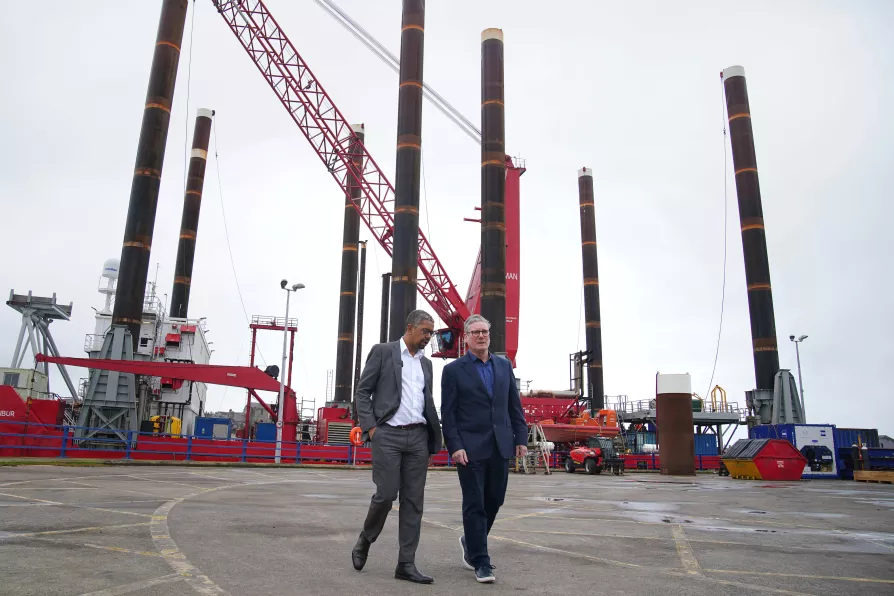In reopening relations with China, the PM showed an uncharacteristic grasp of power, proportion and Britain’s diminished place in the world – a lesson many in Westminster still refuse to learn, says ANDREW MURRAY

 Labour leader Keir Starmer (right) and new Welsh First Minister Vaughan Gething during a visit to the Port of Holyhead, in North Wales, to renew the party's commitment to make Britain a clean energy superpower, March 25, 2024
Labour leader Keir Starmer (right) and new Welsh First Minister Vaughan Gething during a visit to the Port of Holyhead, in North Wales, to renew the party's commitment to make Britain a clean energy superpower, March 25, 2024
ON March 21, Wales’s new First Minister, Vaughan Gething, announced the new Welsh government cabinet. To take up his old portfolio (with some new additions), he has chosen his chief opposition in the Welsh Labour leadership race, Jeremy Miles, whose former responsibilities for education will now be replaced by the economy and energy, while still maintaining his responsibility for the Welsh language as part of his new portfolio.
Opportunities to combine work on the Welsh language with work on the economy is an exciting and welcome development. The connection between the economic base and linguistic vitality is indisputable and, although not the only government portfolio necessary for increasing the prominence of Welsh, the shifting of language policy into the domain of the economy could prove to be a crucial aspect of any language revitalisation effort.
However, this will require a stark departure from the status quo in Welsh economic policy, a departure from an embrace of neoliberalism to an economics that rebuilds the social infrastructure, institutions and community spaces that sustain(ed) a plethora of distinctive Welshnesses.
A deplorable lack of statutory community rights and an economic agenda intemperately fixated on the pursuit of resource-seeking “investment” from spatially mobile economic actors has thrust workplaces and the communities that have grown around them into uncertainty and, in some cases, active decline which has yet to be arrested. The future of vital areas of the Welsh economy remains precarious.
A strategic vision for the Welsh economy
The challenges facing the Welsh economy are longstanding and brought into sharp perspective by the fact that after a quarter of a century of policy effort, whatever way we slice it, very little has changed.
As the scholars Jonathan Bradbury and Andrew Davies note, there has been “little fundamental change in the relative underperformance of the Welsh economy [ … ] whether measured in terms of wealth, economic activity, productivity, employment or wage levels.”

As bus builder Alexander Dennis threatens Falkirk closure and Grangemouth faces ruthless shutdown by tax exile Jim Ratcliffe, RICHARD LEONARD MSP warns that global corporations must be resisted by a bold industrial strategy based on public ownership













